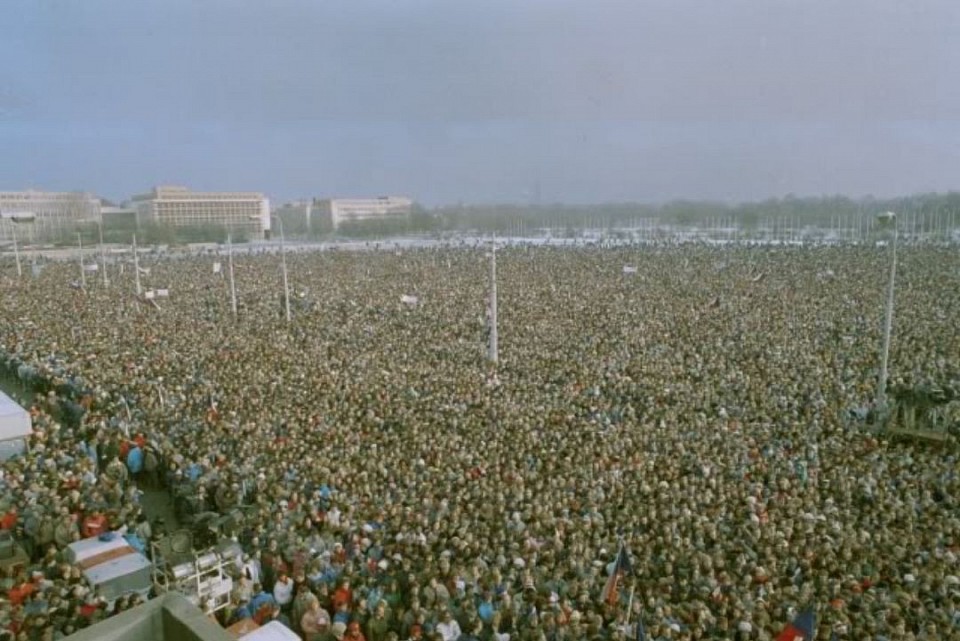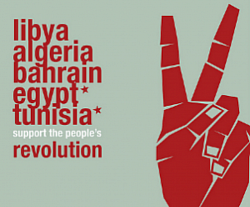Revolutions won by words.
Good Revolutions
Yes, several historical examples demonstrate how knowledge, ideas, and non-violent resistance have sparked revolutionary change without physical force:
1. Indian Independence Movement (Gandhi’s Nonviolent Resistance):
Mahatma Gandhi led India to independence from British rule using nonviolent civil disobedience. His philosophy of *Satyagraha* (truth and nonviolence) inspired mass movements, protests, and boycotts, ultimately leading to India's independence in 1947 without large-scale violent conflict.
2. The Civil Rights Movement (United States):
In the 1950s and 1960s, leaders like Dr. Martin Luther King Jr. used nonviolent protest and the power of ideas to challenge racial segregation and inequality in the U.S. This movement, grounded in moral principles and civil disobedience, led to significant legislative changes, including the Civil Rights Act of 1964 and the Voting Rights Act of 1965.
3. The Fall of the Berlin Wall (1989):
The peaceful protests in East Germany, fueled by the desire for freedom and democratic reform, contributed to the collapse of the Berlin Wall and the eventual reunification of Germany. The movement showed the power of collective action and the hunger for ideas like democracy and freedom.
4. The Velvet Revolution (Czechoslovakia, 1989):
This nonviolent movement led by citizens, intellectuals, and dissidents brought about the peaceful end of communist rule in Czechoslovakia. It was driven by the power of protest, dialogue, and public pressure without the use of physical violence.
5. Arab Spring (2010-2012):
The Arab Spring, a series of pro-democracy uprisings across the Middle East and North Africa, was initially driven by the spread of ideas through social media. Knowledge and information about freedom and human rights spread rapidly, mobilizing masses to challenge authoritarian regimes.
Each of these revolutions shows that ideas, knowledge, and nonviolent resistance can be more powerful than physical force in achieving lasting social and political change.
It is really possible.
systems to disrupt
A global federation*based on freedom of expression, human worth, and the power of words could disrupt current systems in several profound ways.
1. Political Systems
Challenge to Authoritarianism
Authoritarian regimes rely on controlling speech, information, and dissent. A movement promoting freedom of expression would directly challenge these 🏦🏥🏢🏭 by empowering citizens to demand transparency, accountability, and the right to speak freely.
💣Mass mobilizations, protests, and international pressure would weaken oppressive regimes, making it difficult for them to maintain power through censorship and propaganda.
Democratic Revitalization
In democracies where political corruption or stagnation exist, a call for renewed attention to 👨👩👧👦💑👨👩👧👦 and expression could disrupt complacency, forcing 🏦🏥🏢🏭 to act more in line with the will of the people.
💣Political leaders would face increased demands for transparency, accountability, and reform, making it harder for corruption to thrive.
2. Economic Systems
Corporate Accountability
Large corporations, especially those involved in labor exploitation, environmental harm, or human rights abuses, would be confronted with public pressure to change their practices. Through increased freedom of expression, workers, activists, and consumers could call out unethical behavior.
💣Global consumer boycotts, labor strikes, and corporate reputation crises could force companies to overhaul their business practices, leading to more ethical labor conditions, better environmental standards, and increased corporate social responsibility.
Shift in Economic Power
A widespread federation*could embolden marginalized communities to demand fair wages, working conditions, and wealth distribution, especially in countries with high inequality.
💣The economic elite would face challenges as grassroots movements demand more equitable wealth distribution, putting pressure on industries and institutions that benefit from current economic imbalances.
3. Cultural and Social Systems
Breakdown of Social Norms and Hierarchies
The federation*would challenge existing social structures that suppress individuals based on race, gender, class, or other factors. By promoting equality and worth for all, traditional hierarchies and norms rooted in discrimination would be questioned and dismantled.
💣Social conventions, gender roles, and oppressive cultural norms would weaken as more people demand equal rights and opportunities, causing societal shifts toward inclusivity and diversity.
Empowerment of Marginalized Voices
Communities that have historically been silenced(women, indigenous peoples, minorities)would gain platforms to assert their rights and challenge systemic inequalities.
💣This would lead to a more diverse and inclusive public discourse, with traditional power structures (patriarchy, colonialism, racism) facing growing resistance and being forced to adapt.
4. Media and Information Systems
End of Media Monopolies
The federation*would likely lead to a rise in independent media, citizen journalism, and decentralized information sources, challenging the dominance of media conglomerates that control the flow of information.
💣State-controlled or corporate-owned media would lose influence as people turn to alternative platforms for truth, leading to more transparency and less media manipulation.
Spread of Unfiltered Knowledge
Increased freedom of speech would enable the rapid dissemination of ideas, educational content, and news, even in regions where information is traditionally restricted.
💣🏦🏥🏢🏭 and corporations that thrive on censorship or disinformation would face severe pushback, as more people have access to uncensored knowledge and the ability to challenge misinformation.
5. Legal and Judicial Systems
Reform of Laws Restricting Freedoms
Countries with laws that restrict freedom of speech, assembly, or association would be under pressure to reform. Legal frameworks that criminalize dissent or free expression would be confronted by the movement.
💣Legal systems that enforce authoritarian control, discrimination, or unjust practices would face calls for reform, requiring judicial systems to protect human rights more rigorously.
Global Push for Human Rights Legislation
As the federation*gains momentum, international institutions like the UN could face pressure to strengthen global human rights treaties and mechanisms, ensuring more countries are held accountable for violations.
💣Nations resistant to international human rights norms would experience increased diplomatic pressure, sanctions, or intervention, destabilizing authoritarian governance.
6. Educational Systems
Rethinking Education
The revolution’s emphasis on knowledge and expression would lead to demands for education reform, emphasizing critical thinking, human rights, and creativity rather than rote memorization or state-controlled curricula.
💣Traditional education systems, particularly those designed to reinforce the status quo or limit critical thinking, would be overhauled. 🏦🏥🏢🏭 and institutions would be pushed to promote education that empowers students to think freely and challenge authority.
Global Literacy Movements
There would be a surge in efforts to promote literacy, access to education, and freedom of academic inquiry, especially in regions where education is restricted.
💣Elitist or exclusionary education systems would face pressure to become more inclusive, providing broader access to marginalized communities and emphasizing human rights education.
7. Religious and Ideological Systems
Challenge to Dogmatic Structures
The movement would question religious or ideological structures that limit free expression, human rights, or equality, encouraging people to reconsider rigid doctrines and promote open dialogue.
💣Conservative or fundamentalist religious institutions that suppress dissent or promote inequality could face widespread pushback, leading to reforms or loss of influence.
Encouragement of Interfaith and Ideological Dialogue
The federation*would promote open, respectful conversations between different faiths, ideologies, and belief systems, fostering mutual understanding and reducing intolerance.
💣Systems that rely on divisiveness or religious supremacy would be challenged, leading to a more pluralistic and inclusive ideological landscape.
🌍🌐🌎🌐🌏🌐
Potential Long-Term 💣s
Restructuring of PowerAs more individuals and communities are empowered to express themselves freely, traditional power structures(whether governmental, corporate, or social)would face consistent challenges, potentially leading to the decentralization of power.
Global Solidarity Movements
The federation*could create a new era of global solidarity where human rights become central to international relations, leading to more cooperation between nations and less tolerance for human rights abuses.
Shift Toward Ethical Governance
As the federation*takes hold, 🏦🏥🏢🏭 may be forced to adopt more ethical, transparent, and people-centered policies to maintain legitimacy, leading to more democratic governance worldwide.
By focusing on the word as a weapon and using nonviolent methods, this federation*would challenge the very foundations of oppressive systems, leading to potentially profound global transformations.




